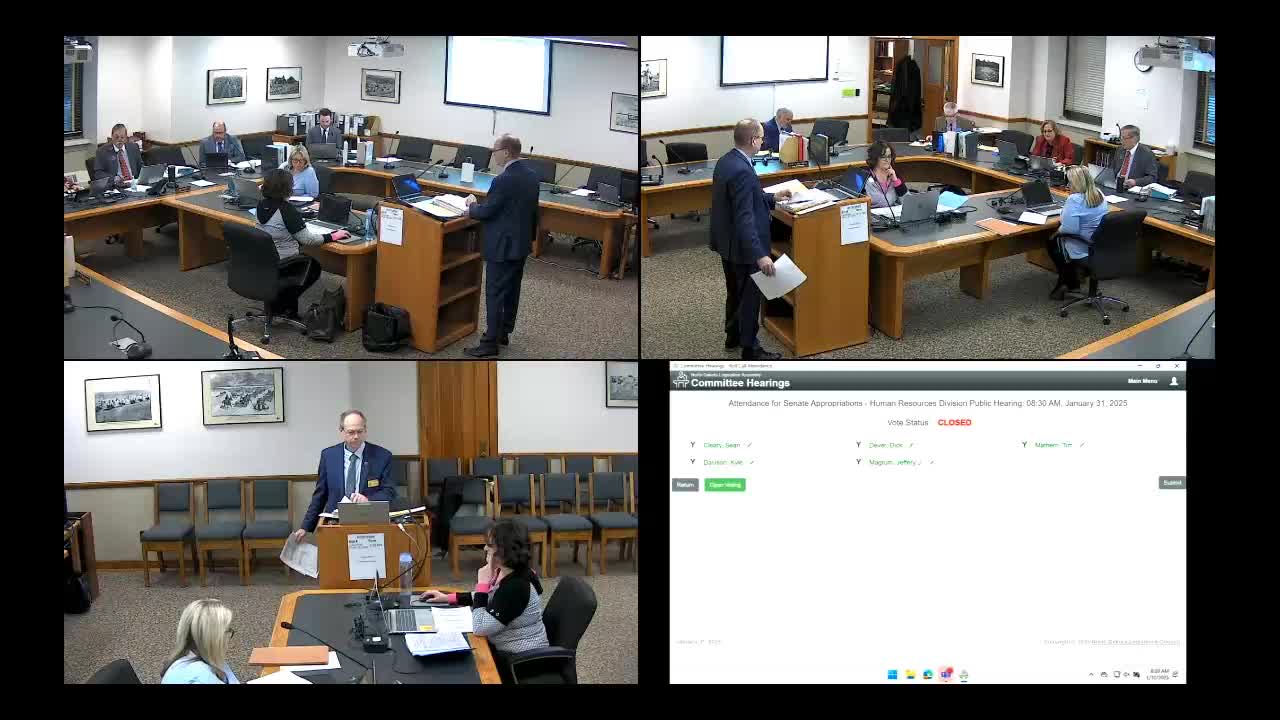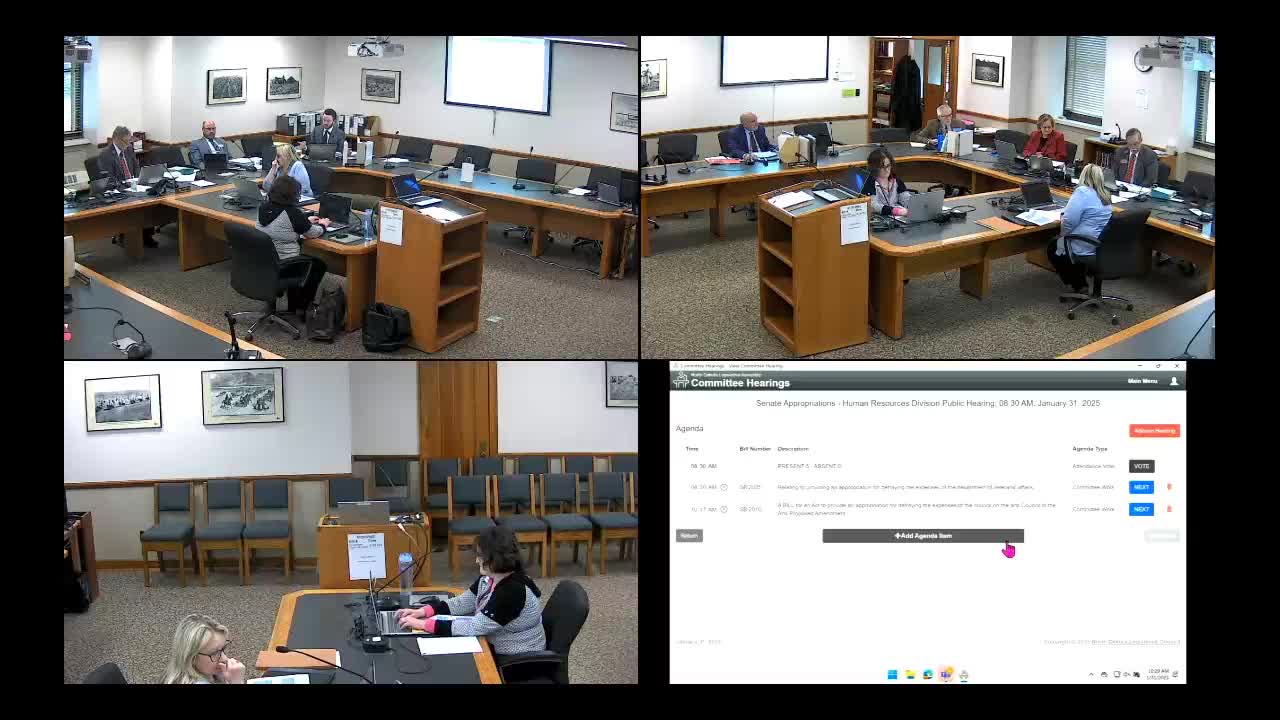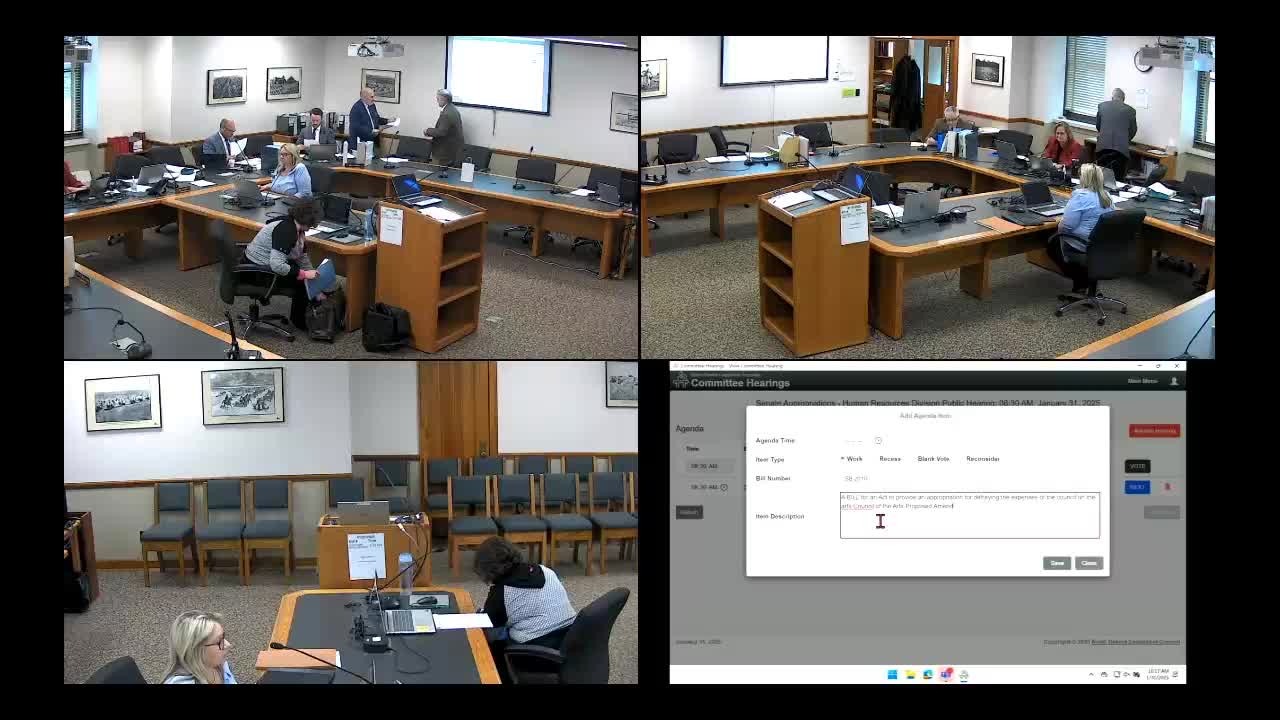Article not found
This article is no longer available. But don't worry—we've gathered other articles that discuss the same topic.

Senate Appropriations reviews Veterans Affairs budget request, including one FTE, ARPA carryovers and commissioner pay

Committee backs regional behavioral health amendment, reduces $100 million request to $64 million and sets bill aside for later debate

